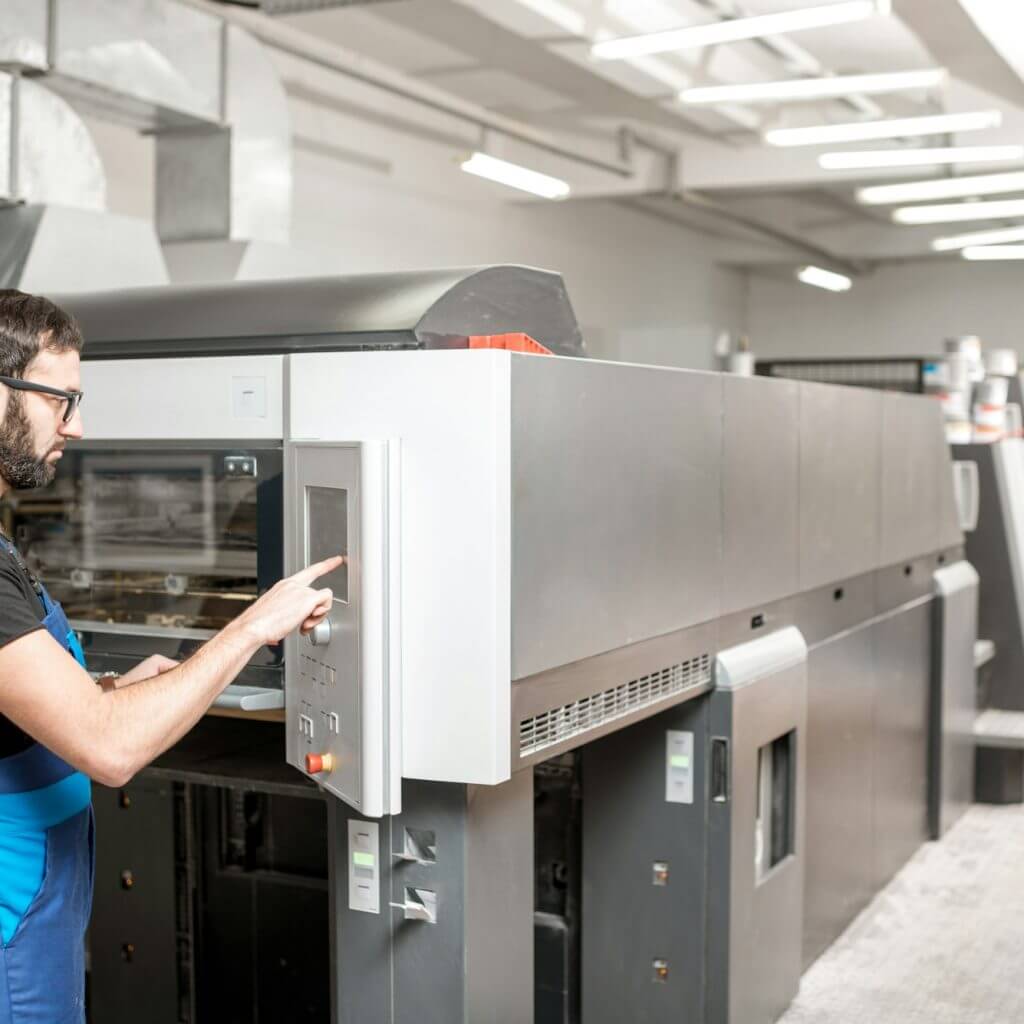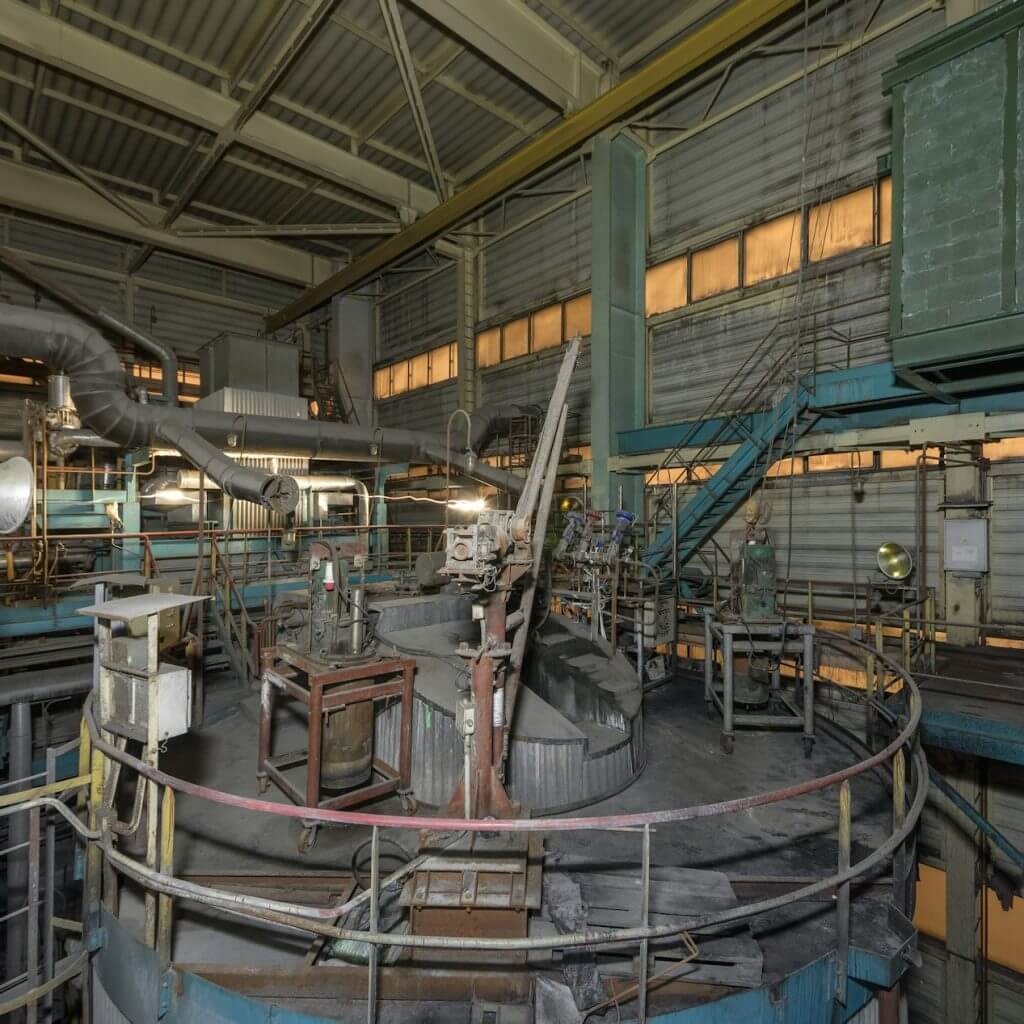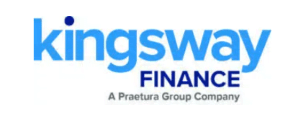Your Asset Finance Company
- Asset finance can reduce the lender's risk helping you to get better terms as a result
- Have more tailored payments, that fit your business's ups and downs
- Improve your tax efficiency, & help to reduce your tax burden
- Upgrade your existing assets quickly & remain competitive
- Does not impact your existing credit lines
So don’t wait, speak to a member of our business finance team today.

We are FCA Authorised & Regulated
(Number: 802921)
Get The Asset Finance You Need, With Business Finance Today
Looking to grow your business but don’t want to tie up all your cash?
Asset finance for businesses, is a way to obtain the equipment, vehicles, or machinery they need without paying the full amount upfront, and depending on the agreement, it’s sometimes called an asset finance loan or leasing.
As a result, asset finance could be the perfect solution for you. So, whether you need new equipment, vehicles, or technology, this flexible funding option will help you spread the cost over time.
Instead of a big upfront payment, for example, you will pay in smaller, more manageable chunks, keeping your cash flow healthy as an end result.
Overall, it can be a very clever way to invest in your business without the financial strain that improving your assets can bring. Plus, with different options like leasing or hire purchase available, there really is something to suit every business need here.
Want to find out how asset finance can work for you?

Asset Finance – Case Study
Here at V4B Business Finance, we take pride in supporting businesses of all shapes and sizes, and one of those cases was for a transport company that was looking for logistic finance options.
Find out more in the case study
Questions About Asset Finance
What is an Asset Finance Loan?
Asset finance is a form of funding that allows businesses to spread the cost of acquiring major assets, such as vehicles or equipment, over time, reducing the impact on cash flow and working capital.
Who is eligible for Asset Finance?
Most businesses, particularly SMEs, can apply for asset finance. Eligibility typically depends on factors such as creditworthiness and the asset’s value.
What types of assets can be financed?
Asset finance can cover a wide range of items, including machinery, office equipment, vehicles, and IT systems.
How does Asset Finance work?
Structured asset finance is more of a tailored way of spreading the cost of expensive kit or vehicles overr time.
For example, here is how asset finance works – we as an asset finance broker help you find a lender, agree on a repayment plan, and you then you get the asset working for your business as quick as possible away.
Is Asset Finance a Loan?
Asset finance is a type of loan, but it is tied to something specific like a vehicle, machine or bit of equipment.
Here instead of borrowing a lump sum for anything, the money goes straight towards the asset your business needs.
You then pay it back in monthly instalments, usually with interest, while using the asset to grow your business. Simple as that!
What is Commercial Asset Finance?
Commercial asset finance then helps businesses get the tools, tech, or transport they need to operate.
It covers things like vans, construction kit, office gear or factory machinery to name a few for instance.
You also do not need to pay the full cost upfront – instead, the lender buys the asset, and you pay it off bit by bit while using it in your business.
What is Vehicle Asset Finance?
Vehicle asset finance is a way for businesses to get cars, vans, lorries or other vehicles without paying the full price upfront. Instead, a lender buys the vehicle for you, and you repay them in monthly instalments over time.
You then get to use the vehicle straight away – whether it is for deliveries, site visits or transporting goods, which tends to be up to you – and you then spread the cost in a way that suits your cash flow.
As a result, this is a popular choice for small businesses, tradespeople, and growing companies who need reliable transport without tying up all their funds.
What are the benefits of Asset Finance?
Asset finance helps businesses avoid large upfront costs, manage cash flow, and access essential equipment that supports growth.
What are the repayment terms?
Repayment terms vary depending on the lender and asset type but typically range from 1 to 5 years.
Are there any fees associated with Asset Finance?
There may be arrangement fees and interest charges. It’s essential to review the full terms and conditions of the finance agreement.
Can Asset Finance be used to upgrade existing equipment?
Yes, asset finance can be used to replace or upgrade outdated equipment, helping businesses stay competitive.
What Are Asset Finance Companies and Brokers?
So you are wondering what is the difference between an what is asset finance broker and asset finance companies (or lenders)?
Well an asset finance company will provide you with the funding to help you secure the asset, while asset finance brokers like us, help you match your business with the right lender to suit your needs.
Think of us as the go-between, saving you time and hassle and using our large pool of lenders to help you get the best business loan for you.
What is Structured Asset Finance?
Structured asset finance is then a more flexible version of standard asset finance.
This type of a loan is often used for big or more complex purchases and can be tailored to your business’s cash flow.
So rather than one-size-fits-all approach, you get a repayment plan that suits your exact budget, timing, and needs.
Think of this more of a clever financing option if your business has some very unique financial circumstances.

Quick and Easy Application Process
Apply for asset finance in minutes online.
Competitive Rates
Fast approval process with competitive rates.
Customisable Financing Options
Flexible repayment options tailored to your business needs.
Related Asset Finance News

As we all know, in today’s fast-paced business world, having the right tools and equipment really is more than crucial. So you have heard of this type of finance, but, what is Asset Finance...

Here at V4B Business Finance, we take pride in supporting businesses of all shapes and...

When you are running a business – whether you are a Sole Trader, limited company, or just setting up shop – getting your hands on the right tools, vehicles, or business assets can be pricey, and we understand this. That is where asset financing comes in...

When it comes to funding large projects or buying big-ticket equipment, businesses often need to look beyond their own pockets. That is where finance options like asset finance and project finance come into their own....

When it comes to funding a business, there really is no one-size-fits-all approach, and every business has different needs as well as faces different challenges. As a result, two popular finance options that often get mixed up are Asset Finance...
How Asset Finance Can Help You Pay Less
Hire Purchase (HP) & Capital Allowances
With HP, you own the asset at the end of the agreement, and you may be able to claim capital allowances, including the Annual Investment Allowance (AIA). This lets you deduct up to 100% of the asset’s cost from your taxable profits in the first year—helping you pay less corporation tax.
Leasing & Rentals
Since lease payments are considered a business expense, they are fully tax-deductible, reducing your taxable profits and, in turn, your tax bill. Plus, you avoid large capital outlays!
Spreading VAT Costs
If you opt for a hire purchase agreement, you’ll usually pay VAT upfront. However, if you go for a lease option, VAT is typically spread across the payments, improving cash flow and reducing immediate tax liabilities.
Offset Your Interest Costs
In some cases, the interest on asset finance agreements can also be claimed as a business expense, lowering your overall tax obligations.
Find out if Asset Finance is right for you
At Business Finance, we make asset finance simple and stress-free. No more worrying about finding the right ideal — we do all the hard work for you. Our team is here to secure the best finance option that suits your business needs.
Want to know how much you could borrow and what your monthly repayments might be?
No problem, Get in touch with our friendly team today, and we’ll be happy to help.
Businesses That Can Benefit From Asset Finance

Kickstart new building projects, all while you manage your cash flow throughout your construction project as well.

Find out how asset finance can benefit Breweries, Microbreweries & Distilleries.

Covers invoicing shortfalls, and provide you with a steady income through more uncertain months.

Buys the seeds, feed you need, get your crops growing quickly, & fund the purchase of machinery you need to make your work easier.

Business circumstances can change at the drop of a hat. Preparing for foreseeable expenses such as quarterly VAT bills, planned expansion or corporation tax can be accounted for in the...

Improve your construction equipment, improve your production efficiency, & maintain your supplier relationships with on-time payments

Get the tools you need to move your business forward, with flexible repayment options that suit your budget.

Buy new vehicles or equipment that you need now, with fast funding to grow your logistics business, and an easy application process with minimal paperwork.

Buy the raw materials you need without hitting your cashflow, while you keep your machines running without worrying about any short term maintenance and upkeep as well.

Help to grow or upgrade your practice easily, and upgrade your medial & dental equipment, refurbishments or even staff costs.

Grow, modernise and upgrade your care home business, while you improve your facilities for better resident comfort & support, & hire more care staff to be able to give better care.

Grow your green energy business faster then otherwise, with quick approval to get things moving sooner to support your eco-friendly and sustainable construction goals.

No more waiting on your client payments & keep your legal firm running smoothly with it being tailored just for legal professionals.

Buy better equipment & get the tools or machines you need without spending all your cash upfront to do so.
Asset Finance Explained
If you are a business owner or just curious about how companies manage to get all their expensive equipment, machinery, or even vehicles without having to put large sums of money upfront, then this guide is for you.
Asset finance, in essence, is a smart solution that lets businesses access the assets they need without needing the high cost of buying them outright in the process.
Consequently, in this Asset finance guide, we will walk you through the basics of asset finance — what it is, how it works, and why it might be just the thing to help your business grow without draining your cash reserves as you do so.
For instance we will cover the different types of asset finance available to you, the pros and cons, and tips for finding the right option for your exact needs as well.
So, whether you are looking to improve your cash flow, keep your finances flexible, or simply understand your finance options better, this guide will give you a clear picture of how asset finance can work for you.
So, let’s explore this topic to help you decide if this is the correct type of business funding for you or not.
What is Asset Finance?
Asset Finance Definition: Asset finance is a way for businesses to acquire or borrow money against valuable assets, like equipment, machinery, or vehicles, all without needing to buy them outright. Instead of paying the full cost upfront, businesses can spread payments over time, making it more affordable to fulfil your business needs as a result.
Essentially, this type of business finance allows companies to access the tools they need to grow and operate efficiently without tying up too much cash in the process. As a result, it is useful for improving your cash flow and also helps businesses keep their capital available for other needs, such as for business growth or VAT bills. Consequently, asset finance is very popular for industries that rely heavily on equipment, such as construction, manufacturing, and transportation, to name a few.
What Are Advantages of Asset Finance?
- ✔️ Preserves your cash flow by spreading the costs over time.
- ✔️ Enables access to high-value assets without full upfront payment being required immediately.
- ✔️ Offers you flexible repayment options suited to help you with your cash flow & to spread the cost of the asset over time.
- ✔️ Reduces the need for large capital investments.
- ✔️ Provides potential tax deductions on lease payments.
- ✔️ Protects your company against asset depreciation risks.
- ✔️ Improves your budget predictability with fixed payments.
- ✔️ Allows easy upgrades to newer technology much quicker.
- ✔️ It helps you build business credit when you have timely repayments.
- ✔️ It increases your operational capacity without any ownership obligations.
The Main Types of Asset Finance
So, whether you are running a large firm or are looking for dedicated asset finance for start up business, this can help you get the tools you need to grow.
You can, for instance, use asset finance for many reasons, such as to replace broken equipment, lease a new commercial vehicle, or even expand your service offerings without requiring a large upfront investment to do so. Alternatively, you can also make a lot more out of your higher-value equipment and intangible soft assets your business already owns.
But, to start off with, what are the different types of Asset Finance?
Well, Asset Finance comes in various forms of funding options, with each of them being structured differently to cater to a company’s different needs, financial situations, and asset requirements.
For example, below are some of the most popular types to help you determine which type is right for you:

✔ Lease Financing
Lease financing is a form of asset finance that, in essence, is an arrangement where the financier purchases an asset and then leases it to the business for you.
You then make regular lease payments to the financier but gain immediate access to the asset without needing to pay its full cost upfront.
Leases are often categorised as Operating Leases or Capital Leases here, each with its own benefits and end goal.
For instance, operating leases typically cover shorter periods and often return the asset to the financier, whereas capital leases are longer-term and may offer you a purchase option at the end, for example.
✔ Contract Hire Purchase
In a hire purchase agreement, a business or individual can acquire an asset by making a series of instalment payments over time.
However, unlike lease financing, hire purchase transfers ownership of the asset to you and your company at the end of the term, once all payments have been made.
It is especially suitable for businesses looking to eventually own the asset but who want to spread the cost over a period of time as well.
✔ Equipment Loans
Equipment loans are then specifically tailored to fund the purchase of business-critical assets needed by your business – such as machinery, tools, or vehicles for example.
With an equipment loan, you then gain immediate ownership of the asset, while the loan provider holds it as collateral until the loan is repaid.
Equipment loans are also often used by industries with high equipment costs, such as manufacturing, construction, and agriculture, to name a couple here.
Hard Assets & Soft Assets, What is the Difference?
When it comes to this type of financing, it is important that you understand the difference between hard and soft assets.
For example, hard assets are tangible assets like your machinery, real estate, and vehicles, which have a physical presence and can often appreciate or retain their value over time.
Soft assets, on the other hand, include more intangibles such as intellectual property, software, and trademarks. While soft assets lack physical form, they can add a lot of value through brand equity and knowledge for instance.
Operating Leases vs. Capital Leases
As you can see, asset finance really plays a key role in helping your business manage its cash flow and working capital by providing flexible financing options for acquiring the business assets you need, with affordable monthly repayments instead.
Operating leases and capital leases, however, serve very different financial and operational goals. For instance, they include a wide range of finance solutions based on your business’s needs and asset management strategies.
✔ Operating Leases
Operating leases are another asset finance product that are ideal for businesses needing new equipment, new assets, or Commercial Vehicles for a shorter term without the commitment to ownership.
For example, a technology company here might lease IT hardware on a two-year operating lease, allowing them to upgrade to the latest equipment more frequently as a result.
Since the business does not assume ownership of the asset, operating leases then have lower monthly payments, helping you maintain your flexibility in asset management as a result.
Additionally, operating leases also do not appear as liabilities on your balance sheet either, which can be advantageous for limited companies concerned with their debt-to-equity ratio and credit ratings as well.
✔ Capital Leases
Capital leases, then, in contrast, are used when a business intends to keep the asset long-term.
These leases often have a purchase option at the end of the lease term, allowing your business to acquire the asset at a nominal fee set out in your contract.
A manufacturing company, for instance, might use a capital lease to finance construction equipment they expect to use for many years.
Since capital leases transfer most of the asset’s value to the lease, they typically appear as liabilities on the balance sheet – similar to a secured loan would.
Consequently, this form of asset financing can then be part of a broader strategy to own essential assets without the upfront cost, thereby helping your business grow as a result.
Just Starting Out? We’ve Got You Covered
Starting a new business is exciting — but let’s be honest, it can be a bit overwhelming too, especially when it comes to buying the equipment or vehicles you need to get going. That’s where we come in.
We specialise in asset finance for new business ventures, helping you secure the tools you need without tying up all your cash. So, whether it’s machinery, office tech, company vehicles, or anything in between, this type of finance lets you spread the cost, so you can focus on growing your business instead of stressing over big upfront payments.
And don’t worry if you are not sure where to begin, our team can guide you through the process. As an experienced broker in asset finance, we have helped loads of new businesses just like yours find the right deals, even if you are still building up your credit history or haven’t been trading long.
Consequently, we will connect you with trusted asset finance lenders who understand the unique needs of start-ups and offer flexible terms tailored to your situation.
In short: we’ll sort the finance, so you can get on with building your dream business.
How Do You Apply for Asset Finance?
The asset finance application process normally involves several steps, which will vary depending on the lender’s requirements, the asset’s value, and your financial profile, for instance.
Consequently, understanding this process can help business owners – like you – make more informed decisions and choose the right finance products for your needs.
For example, in asset finance, businesses will typically apply for a lease or hire purchase agreement.
The finance provider will then purchase the asset for you, and the business will then pay the lender in instalments over an agreed period.
This process then involves assessing your business’s creditworthiness and the asset’s value, for example.
As a result, normally, you would expect the following to occur:

✔ Initial Consultation
We will first start with a consultation, which can either be over the phone or via video, to help assess your options.
During this phase, we will start to gather information on the asset’s purpose, projected business impact, and desired loan terms you are after, to name a few points.
This step can also involve discussing different types of asset finance, such as hire purchase agreements, finance leases, or asset-based lending that may be right for you.
✔ Lender Evaluation Stage
We will then go to our select lenders, and they will review these documents alongside your business’s creditworthiness and any prior financing history.
If applying for equipment finance or capital leases, our lenders may assess the asset’s residual value and its potential use across its life span as well.
Please note that all of this is done under the guidance of the Financial Conduct Authority (FCA), which will regulate this process from start to finish.
✔ Fund Disbursement or Asset Acquisition
Once the terms are finalised, the lender will then disburse the funds for your asset acquisition or, in cases like finance leasing, directly acquire the asset on your behalf and will arrange delivery.
This allows you immediate use of the asset without the full cost upfront.
✔ Document Submission
You will then typically need to provide financial statements, tax returns, credit history of the company and company directors, and, in some cases, a business plan or projected revenue to demonstrate the value of the asset to the business as well.
For a limited company, this might include details about your existing assets and liabilities as well.
✔ Approval and Terms
Once the application is approved, you will then need to review the loan terms that the lenders and we will make clear to you, which can include, for instance, your repayment schedules, fixed or variable interest rates, and conditions for early termination for example.
Are There Any Tax Benefits of Asset Finance?

Asset finance can offer you various tax benefits depending on the financing type you select:
For instance, something to consider here for instance can include:
✔ Operating Lease Payments
For operating leases, payments are often tax-deductible as they are treated as a business expense.
This makes operating leases especially attractive for UK businesses looking to minimise taxable income while maintaining as much flexibility as they can get in asset use as they do so.
✔ Interest Expenses
For equipment loans and term loans, interest payments are often deductible as business expenses as well, reducing the effective cost of financing.
This deduction can then result in significant savings for capital-intensive businesses with high loan amounts and aid in improving your cash flow at the same time.
✔ Capital Leases and Depreciation Deductions
Capital leases and hire purchase agreements are considered ownership-like agreements, allowing businesses who take them out to claim depreciation deductions on the asset itself as a result.
This is especially beneficial for assets that depreciate very quickly, such as machinery in manufacturing or medical equipment for example.
What Impact on Your Credit Score Can Asset Finance Have?
Asset finance can influence a business’s credit score positively or negatively depending on your payment consistency.
For instance, here this can:

✔ Help You Build a Positive Credit History
Regular, on-time monthly payments can really improve your business’s credit profile, by increasing your eligibility for future financing options with better terms and competitive rates as a result.
This is especially key for small businesses that are looking to expand their operations.
✔ Missed Payments and Defaults
Missed payments can also result in penalties and negatively impact your business’s credit score.
For instance, here, if a business defaults, the lender may repossess the asset, and this event can be recorded on the business’s credit report, making future financing much harder to get.
Consequently, it is essential to manage your cash flow effectively to avoid such situations from occurring again.
What Industries Benefit The Most From Asset Finance?
Asset finance is widely used in industries that require high-cost, revenue-generating equipment, such as construction, healthcare, manufacturing, and logistics for instance.
Companies in these sectors rely on equipment financing for growth and to stay competitive without tying up large amounts of capital.
Is There a Difference Between Asset Finance & Equipment Finance?
Equipment finance is a specific type of asset finance focused on acquiring business equipment like machinery, computers, or vehicles.
Asset finance, on the other hand, is broader and can include any valuable asset, including property, intellectual property, or specialised tools, for instance.
What Industry Applications Is Asset Finance Ideal for?
As you can see, Asset finance, in essence, is a very flexible way for businesses in many industries to get the equipment they need without paying a large sum upfront.
For example, in the construction industry, companies here will often use asset finance to acquire the machinery they need, such as diggers and cranes.
This, in turn, helps them to take on more projects without straining their budgets in the short term.
In the healthcare sector, asset finance is then used to purchase expensive medical equipment, such as MRI machines and ultrasound devices, to name just two here.
As a result, this then allows hospitals and clinics to offer better services to their patients without the huge initial investment in the machine upfront.
Whereas, for retail businesses, these will tend to benefit from asset finance by using it to upgrade their shop fittings and in-store technology to help improve their overall profitability.
This can then improve their customer experience further while keeping their stores up-to-date with the latest trends at the same time as well.
As a result, you can see that by using asset finance, businesses across different sectors can really stay competitive, as well as meet their operational needs without the financial burden that comes with buying new equipment outright here.


How Can This Type of Business Finance Improve Your Finance and Daily Operations?
In general, using asset finance can have many positive effects on a business’s finances and operations.
Financially, for instance, it helps you to manage your cash flow by spreading the cost of your equipment over time.
Then, by spreading your cash flow, this means that businesses like yours do not need to dip into your savings or disrupt your cash reserves to then make these large purchases.
Additionally, asset finance can offer you many more tax benefits as well.
For example, lease payments are often considered a business expense, which can reduce the amount of tax a company needs to pay, for instance.
Operationally, though, asset finance allows businesses like yours to get the latest technology and equipment, which can then drastically improve your efficiency and productivity.
For example, here, a manufacturing company might use asset finance to upgrade to newer, faster machinery and CNC machines, allowing you to produce more goods in less time, for instance.
Overall, you can see here that asset finance really does a good job at supporting your business growth, by providing you with the tools needed for your success, all without the immediate financial pressure of buying them outright as well.
What Happens to Leased Equipment at the End of the Lease Term?
At the end of an operating lease, the asset is typically returned to the lender unless the agreement specifies a purchase option.
For capital leases and hire purchase agreements, businesses may have the option to purchase the asset at a predetermined price, often at a nominal value – this will be outlined in your contract.
This allows for ownership of the asset to be fully acquired after the agreed period, for example.

Is Refinancing Available for Existing Asset Finance Agreements?
Refinancing can be an option for businesses looking to adjust repayment terms, reduce monthly payments, or take advantage of lower interest rates.
Many of our lenders allow refinancing if the asset still holds significant residual value, for example.
Understand The Long-term Financial Commitments in Asset Finance
Asset finance is a very attractive option for businesses looking to acquire essential equipment without the costs of a large upfront payment.
However, it is also key for you to understand the long-term financial commitments that come with these agreements.
For instance, these commitments can have significant implications for a business’s strategic planning that you need to factor in.
For example, when a business enters into an asset finance agreement, it will typically commit to a series of regular payments over an extended period.
These payments can also span several years, depending on the type of asset and the terms of the agreement you are after.
While spreading costs over time can make it easier to relieve your immediate financial pressure, it also means that the business is tied into a financial obligation which you need to consider as well.
For instance, here, a higher rate over a shorter time period might be a better option.
To help you reduce your risk, you should, for instance:
✔ Conduct Thorough Financial Planning
Before entering an asset finance agreement, you should also conduct a detailed analysis of your financial projections, and be realistic as well.
This will then help you to make sure that your business can comfortably meet the payment obligations even if your market conditions fluctuate down the line.
✔ Asset Depreciation
You should also be aware of how the asset’s depreciation might affect its value over the term of the agreement. This is particularly important if you plan to purchase the asset at the end of the lease for example.
✔ Flexibility
Ahead of time, you should also consider the potential need for financial flexibility in the future. For example, if your industry is more prone to rapid changes, or if your business plans to expand or pivot, a long-term financial commitment needs to be factored in.
How Do Interest Rates Compare Across Different Types of Asset Finance?
Interest rates vary significantly.
Equipment loans and hire purchases often have slightly higher rates due to direct ownership transfer, while operating leases may offer you lower rates since ownership remains with the lender here.
Capital leases can also tend to give you more competitive rates as they secure both the asset and a potential ownership path for the lease.
What is the Typical Duration for Asset Finance Agreements?
The term length will vary widely. For example, operating leases are usually shorter, ranging from 1 to 5 years, while capital leases and hire purchases can extend up to 10 years – depending on the asset type and its useful life expectancy.
Long-term agreements are also more common for assets like medical equipment or business cars as well, we should note, but this can all vary based on the finance terms and product you are looking to take out.
How Does Asset Finance Differ From Asset Refinancing?
These 2 come across very similar, but, actually differ in a number of ways, for example:
Asset Finance
As you can see, asset finance is a way for businesses to acquire new equipment or vehicles without having to pay the full amount upfront, by allowing you to spread the cost over time, making it more manageable through regular payments.
This method is therefore more ideal for businesses looking to expand or upgrade their assets without straining their cash flow.
Asset Refinancing
On the other hand, asset refinancing involves using your assets that you already own as a business, such as machinery or property, as collateral to secure a loan or release cash from them.
This option is then more beneficial for businesses who need immediate capital, helping you to unlock the value that is tied up in your existing assets as a result.

| Feature | Asset Finance | Asset Refinancing |
|---|---|---|
| Purpose | ✔ Acquire new assets | ✔ Unlock cash from existing assets |
| Upfront Payment | ✘ No large upfront payment | ✘ No upfront payment needed for loan |
| Cash Flow Impact | ✔ Spreads cost over time | ✔ Provides immediate cash flow boost |
| Ownership | ✘ Asset owned after payments | ✘ Asset used as collateral |
| Ideal For | ✔ Businesses expanding or upgrading | ✔ Businesses needing quick capital |
| Creditworthiness | ✔ Requires credit assessment | ✔ Requires asset valuation |
| Long-Term Commitment | ✘ Tied to regular payments | ✘ Tied to loan terms |
| Flexibility | ✔ Flexible repayment terms | ✔ Flexible loan options |
So is Asset Finance Right For You?
As you can see, Asset finance really is a valuable financial tool for businesses like yours and individuals looking to acquire the necessary assets without any large upfront costs in doing so.
With options such as leasing, hire purchase, and equipment loans available to you here, you and your business can choose the financing structure that really aligns best with your needs and goals.
So, whether you are aiming to maintain your cash flow flexibility through operating leases or prefer the ownership advantages of a capital lease, understanding the ins and outs of asset finance really helps you make informed and the best strategic decisions as a result.
Contact Customer Services
For more information or personalised assistance, please do not hesitate to contact our finance company, where we have extensive experience in asset finance.
Who Is V4B Business Finance?
Here at V4B Business Finance, as a specialist asset finance provider, we can offer you varying types of business financial services with good business loan repayment periods. Consequently, we specialise in providing you with comprehensive corporate funding solutions for UK businesses, and our team is here to help you find the right loan for you.
Consequently, as a business loan provider, this means that we can offer you a wide range of financial products, including business loans, equipment finance, VAT funding, short-term business loans, and many more business finance solutions.
With over 30 years of experience, V4B Business Finance LTD is a business credit broker and not a lender. We are authorised and regulated by the Financial Conduct Authority (FCA) and the ICO in England and Wales.
As a result, we pride ourselves on delivering your company-tailored financial solutions that support your business growth and development.
Please note: Our finance options are available for business customers only, limited companies only, and corporate customers only.
Find out if Asset Finance is right for you
With a broker asset finance service like ours, you do not need to do the legwork. We instead compare the market and get deals that suit your business for you.
At Business Finance, for instance, we really do make asset finance simple and stress-free. No more worrying about finding the right ideal — we do all the hard work for you.
Our team is here to help you secure the best finance option that suits your business needs.
Want to know how much you could borrow and what your monthly repayments might be?
No problem. Get in touch with our friendly team today, and we will be happy to help you.
Meet the Team Behind Business Finance

Trusted Asset Finance Lenders at Your Fingertips
We work closely with some of the UK’s top asset finance lenders, making sure you’ve got the right options for your budget and goals.
Some of our finance lenders include, for instance:





